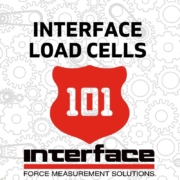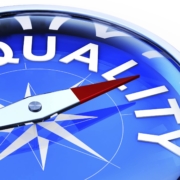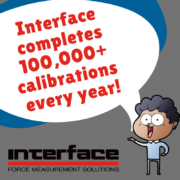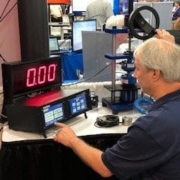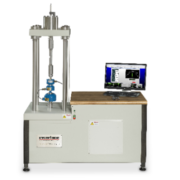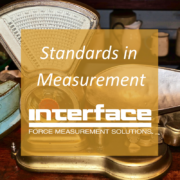Metrologists and Calibration Technicians 101
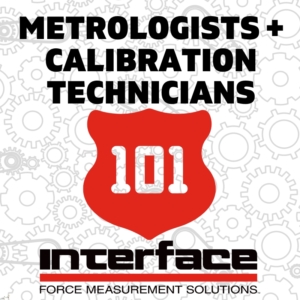 Interface works with metrologists and calibration technicians worldwide. We are a partner, supplier of calibration grade products they use, and participants in research to advance the science of measurement. We are also proud team members with experienced experts in measurement, including our esteemed force measurement engineers and calibration technicians at Interface.
Interface works with metrologists and calibration technicians worldwide. We are a partner, supplier of calibration grade products they use, and participants in research to advance the science of measurement. We are also proud team members with experienced experts in measurement, including our esteemed force measurement engineers and calibration technicians at Interface.
By simple definition, a metrologist is a scientist who researches and applies the science of measurement. Working in the field of metrology, they often create processes and engineer tools and systems used to measure objects, such as load cell calibration tools used to accurately to measure applied force.
Engineers and technicians work in collaboration with metrologists in the design of products and devices used for measuring objects. Metrologists are keen to maintain the accuracy standards of measurements for organizations, product makers, and manufacturers of measurement devices.
Metrologists practice their expertise in test and measurement at manufacturing facilities, corporate R&D centers, independent test and calibration labs, government entities and standards organizations, as well as at higher learning institutions. The range of industries that utilize metrologists spans from aerospace to medical sciences. It is commonplace for metrologists to participate in research, product design, testing, and repair of equipment.
To preserve accuracy of performance and standards of measurement, metrologists develop calibration procedures to control performance of devices. They use these techniques to also identify enhancements and continuous improvement initiatives. Metrology professionals often share their findings with metrologist groups and associations, for purposes of scientific research and development within the field of measurement science. NIST publishes reports related to metrology from contributors around the world. You can find thousands of reports here.
Calibration technicians calibrate test and measurement equipment, as well as provide quality inspection, installation, troubleshooting support, and regular maintenance. Cal techs operate the machines used to validate performance, then report on the findings.
A calibration technician can work in production or manufacturing environments, onsite calibration labs, or for independent labs that provide services to users and makers of measurement devices. It is quite common to find calibration labs staffed with experience technicians as a part of a manufacturer’s facility, across most industries. Depending on the size of the manufacturer, this could include a small in-house lab or multiple lab sites. These labs are stocked with a variety of sensors, rigs, machines, and tools. As noted by many of our representative firms and onsite customer visits, they often will find shelves of blue load cells ready for use at any time for test and measurement projects and calibration services.
Interface supplies calibration labs with all types of measurement calibration grade transducers and equipment, including:
- GS-SYS04 Gold Standard® Portable E4 Machine Calibration System
- GS-SYS03 Gold Standard® Portable Load Cell Calibration System
- Calibration Adapters
- Model IFVF Capacity Force Verification Frame
- Gold Standard® Calibration System
- 1600 Gold Standard® Calibration LowProfile® Load Cell
- 1601 Gold Standard® Calibration Compression-Only LowProfile® Load Cell
- 1606 Gold Standard® Low Capacity Calibration Load Cell
- 1800 Platinum Standard® Calibration LowProfile® Load Cell
- 5500 Calibration Grade Reaction Torque Transducer
- 9840 Calibration Grade Multi-Channel Load Cell Indicator
- Additional Interface Calibration Grade Solutions
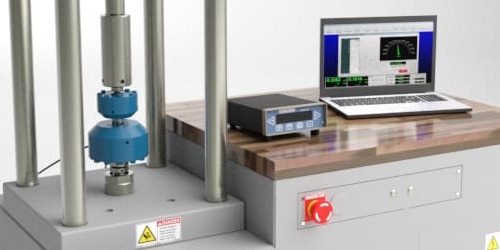 Calibration technicians work with various testing and calibrating tools and technologies. The role requires a mix of expertise in the science and application of measurement. Interface has multiple onsite calibration labs with full testing rigs, machines, operating tools, instrumentation, and software used for tracking performance. Interface does calibrate every product we manufacture, to certify performance prior to releasing to the customer.
Calibration technicians work with various testing and calibrating tools and technologies. The role requires a mix of expertise in the science and application of measurement. Interface has multiple onsite calibration labs with full testing rigs, machines, operating tools, instrumentation, and software used for tracking performance. Interface does calibrate every product we manufacture, to certify performance prior to releasing to the customer.
Interface Services Calibration Technicians operate within our Services Calibration and Repair Department at our Interface production facilities in Arizona. They provide services for Interface products for annual and regular calibration check-ups, as well as diagnostic, repair, and warranty evaluations. Interface recommends annual calibration services. If you need to schedule a service, go here.
Technicians perform calibrations and any additional needed services for customer owned equipment, works with quality and inspection managers to maintain the proper records within the services process application. They ensure that the measurements taken with our equipment are accurate. Interface calibration techs work on multiple shifts for a 24/6 operation. Interface is adding qualified technicians to our team to meet the demands in production and services.
Calibration technicians perform inspection, testing and validation to ensure conformance to established accuracy and calibration standards. They also help to create calibration procedures and help n sourcing errors or quality issues reported during calibration activities.
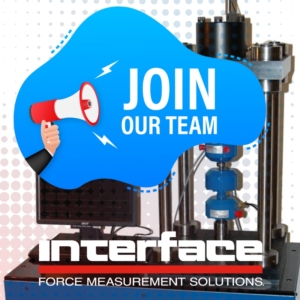 Requirements for Interface Calibration Technicians include:
Requirements for Interface Calibration Technicians include:
- Perform basic to mid-range diagnostics of force measurement equipment
- Work collaboratively in a team environment to complete discrete tasks
- Print and Review Calibration Certificates Competencies
- Able to use fine motor skills to calibrate product
- Able to work with hand and power tools, lifts, electronic test equipment, soldering and indicators
- Understands industry and quality concepts and standards such as ISO, A2LA, NIST
- Offers suggestions and improvements as they see them
- Organize and schedule work in progress
- Experience in calibration technology, science, engineering, or a related field
You can apply for positions Interface Calibration Technician jobs here.
For metrologists and calibration technicians, quality and control require strict adherence to ensure that the products and equipment are performing properly. As measurement is exact, both are responsible for performing routine audits and quality inspections to maintain compliance with good calibration practices.
ADDITIONAL RESOURCES
Regular Calibration Service Maintains Load Cell Accuracy
Top Five Reasons Why Calibration Matters
Extending Transducer Calibration Range by Extrapolation
Strain Gage Design Under Eccentric Load WRSGC Presentation
Specifying Accuracy Requirements When Selecting Load Cells
